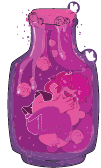
Article by
Rukhsaar’s in-laws never allowed her to take market trips alone. The soft-natured 29-year-old ‘bahu’ never objected to it. However one day after around 8 months of her marriage, she asked her mother-in-law to go out:
“Ami g, May I visit the tailor’s shop?”
“Better take Sarah with you,” her mother-in-law replied.
Suddenly, her face turned red and the usually calm-faced Rukhsaar started yelling, “I am not a child. Don’t think that I do not know the location. I can go alone. If Sarah, Aliya, and Asma can go out, why do you stop me?”
Her response that day was weird. Because she shocked everyone with that. She was thought to be a cool, and composed person. That day, she gave an entirely unexpected response due to bottling up.
Did you know what truly aches? Having so much inside you and not having the slightest clue of how to let it out.”
Rukhsaar’s response seems relatable for many of us. It happens with many of us (at many times in life) when we do not let things out. In layperson’s terms, the reaction she gave to her mother-in-law was an emotional explosion or like a blast that occurred due to pent up anger.
Is Pent-up real?
Hiding true emotions is very common. According to psychologists, bottling your emotions up is harmful. Though it feels safe to keep quiet all the time (when actually, we are just angry from inside); but it is not the ideal way to live a life. This attitude prevents us from discussing our problems and connecting with others. Over and over, not giving vent to negative emotions can backfire unexpectedly which is not good for our physical as well as mental health.
Why do we bottle emotions up?
In life, we usually bottle emotions up to make relationships work. Sometimes, the intention can also be to just pass the time and deal with the negative emotions later.
Suppressing emotions offers a pseudo sense of safety. Safety from being misjudged, mocked, rebuked, or abandoned. Sometimes, people also suppress their emotions if they fear hearing a no from others.
Mostly, it is rooted in our childhood. Children learn to subdue their emotions if their parents/guardians are not understanding or cooperative.
How does it backfire?
Though, it feels good to hide our true feelings; however, doing it for a long time makes us prone to emotional explosion. Some other effects that it can cause are here:
· Destroys mental well being
Long-term dismissal of emotions decreases self-confidence and integrity. Such people start thinking that others do not care about them. And they do not have a say in their circle (house, school, among peers and friends).
Moreover, chronic suppression of feelings makes us frustrated, anxious, stressed out and depressed. It also builds up anger, and contempt for others.
Take a toll on physical health
Pent-up emotions can also affect physical health. It raises stress levels and higher stress raises risks of developing chronic diseases like diabetes, and heart problems. Besides, it also impacts our memory and sleep cycle.
In fact, a 2013 Harvard School of Public Health and the University of Rochester research revealed people who bottled up their feelings augmented their risk of premature death by more than 30%, and their cancer risks also glided by 70%.
Impairs social relationships
At our core, we are social beings. We cannot live alone for a long time. But keeping things to ourselves (abnormally), increases gaps in relationships. It creates more misunderstandings and develops more grudges.
Alarming Signs of Bottling Up
Know that there is a big difference between being introverted and being a person who suppresses their feelings. The latter is harmful, while the former, not!
· If you often feel that others do not understand you
· When you shut down the attempts to small talks more often
· When you do not understand what you extract/get from time you spent in your circle/relationships
· When you often complain headaches, upset stomach, tension and racing heart
· If you are often angry at others and disappointed with the world
· When your frustration rises
· When you feel bitterness more often
· If you experience road rage (it is also a sign of bottling up)
How to Tackle this Issue
Some people are good at expressing themselves naturally. However, others need practice and experience to learn how to express their true feelings. It is something that one can improve with time.
· Make it a habit to appreciate others
· Try to say no without being harsh
· Practice presenting your point of view even if others do not like it. Start with some positive sentences for such a conversation. Then, present your point of view in the end. Keep it short and crisp
· Keep your tone low and polite even with a child
· Enjoy small talk with strangers
Bottom line
Often, we conceal our feelings because we feel comfortable doing it. This habit gradually bubbles up and causes an explosion one day. It destroys emotional, mental, physical, and social well-being. So, it is a good idea to unlearn bottling up and make it a habit to express your true feelings without harming anyone.
 Monthly "Azeem English Magazine", launched in 2000, records the information about diverse fields like mental health, literature, research, science, and art. The magazine's objective is to impart social, cultural, and literary values to society.
Monthly "Azeem English Magazine", launched in 2000, records the information about diverse fields like mental health, literature, research, science, and art. The magazine's objective is to impart social, cultural, and literary values to society.
+92 51 88 93 092
First Floor, RAS Arcade, Eidhi Market, Street#124, G-13/4, Islamabad, Pakistan, 44000.